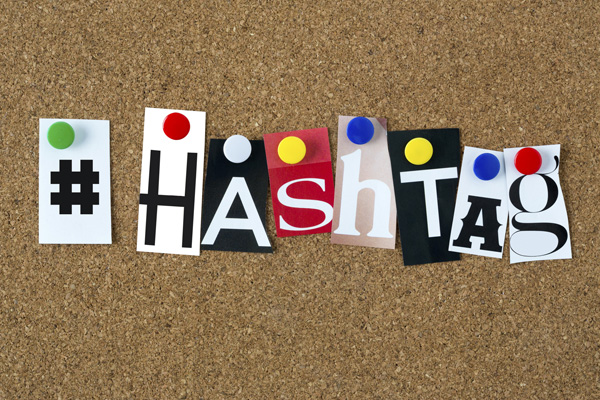3Qs: A closer look at hashtag activism

Social media and social activism naturally go hand in hand. From “liking” something on Facebook to hashtag activism, increasingly we see social movements like #BringBackOurGirls and #YesAllWomen spread globally via social media. Brooke Foucault Welles is an assistant professor of communication studies in the College of Arts, Media, and Design whose research looks at how social networks shape and constrain behavior. Here, she discusses the pros and cons of hashtag activism, and explains what critics mean when they use the term “slacktivism.”
Hashtag activism is becoming more common, with #BringBackOurGirls and #YesAllWomen specifically garnering a lot of attention recently. Why do you think these hashtags have received so much attention, and what have they revealed about hashtag activism?
We are starting to see a lot of crossover between social media and mainstream media. Several of the morning and cable news programs have segments dedicated to covering things that are trending online. So, some of the ideas that gain momentum online—including #BringBackOurGirls and #YesAllWomen—are reaching enormous audiences through mainstream media. This is important because the mainstream media—especially television news programs—have a huge influence on what issues people think are important. The mainstream media don’t tell us what to think, but they do tell us what to think about. When one of these hashtags crosses over from social media to mainstream media, it can elevate a relatively obscure issue to one that everyone is talking about.
Critics have dubbed the use of hashtags and Facebook “likes” for social movements as “slacktivism.” What does this mean, and what’s your take on this criticism?
Some people have argued that these forms of social media protest enable a kind of “lazy activism.” One of the main concerns is that hashtags and Facebook “likes” have the potential to make people feel as if they “did something” about a cause without actually doing anything to meaningfully enact change. On some level, I think that is a fair critique—for most people, hashtag activism involves virtually no commitment or risk. When you tweet you are “doing” very little. There is some concern that tweeting or “liking” could displace more substantial forms of participation, such as donating time or money to support a cause. But, the empirical evidence suggests the opposite is true—people who engage in hashtag activism are more likely to engage in traditional (offline) activism, too. Clearly, re-tweeting a message does not constitute activism the same way that donating time or money does, but re-tweeting a message could be part of a set of behaviors that lead to social change.
What good and bad can come from hashtag activism?
Hashtag activism can be a very powerful tool to raise awareness about an issue, especially if people who are directly involved in the issue are the ones using the hashtags. #YesAllWomen is a nice example of that. In the wake of the horrific shootings at UC Santa Barbara last month, thousands of women used #YesAllWomen to highlight how American men are socialized to believe they are entitled to women’s bodies and attention. One of the central goals of #YesAllWomen was to make space for conversations about violence against women. Often, these conversations are shut down with the observation that not all men are violent or abusive to women. Although this is true, the implication is that women who express concerns about abuse and violence are exaggerating. By sharing their very recognizable personal experiences using #YesAllWomen women collectively made an important point—not all men are violent and abusive toward women, but all women have been victims of gendered violence and abuse, and this is an issue that we need to be talking about.
Unfortunately, in some cases, the awareness raised through hashtag activism can complicate things for the people that it is intended to help. Some people have critiqued #BringBackOurGirls because it focused international attention on an issue that might have been better resolved locally or regionally. International attention can be a powerful tool to provoke change, but it can also feed dangerous situations on the ground. Generalized calls to “do something” ignore the complicated political realities of international interventions. To be clear, it is good for Americans to take an interest in global issues, but it is important to remember that the best solutions may take months or years to implement—well beyond the lifecycle of a well-meaning hashtag.






